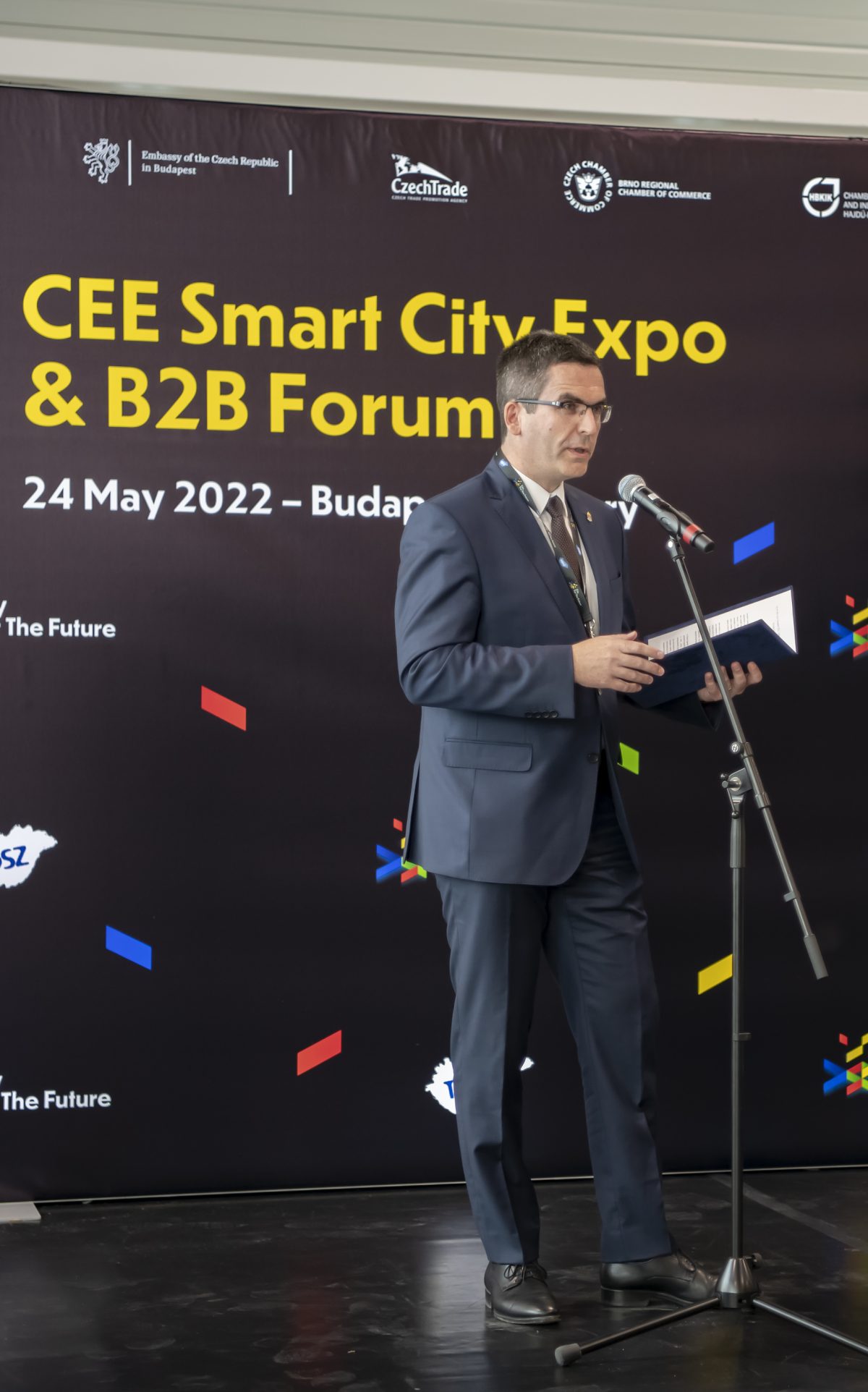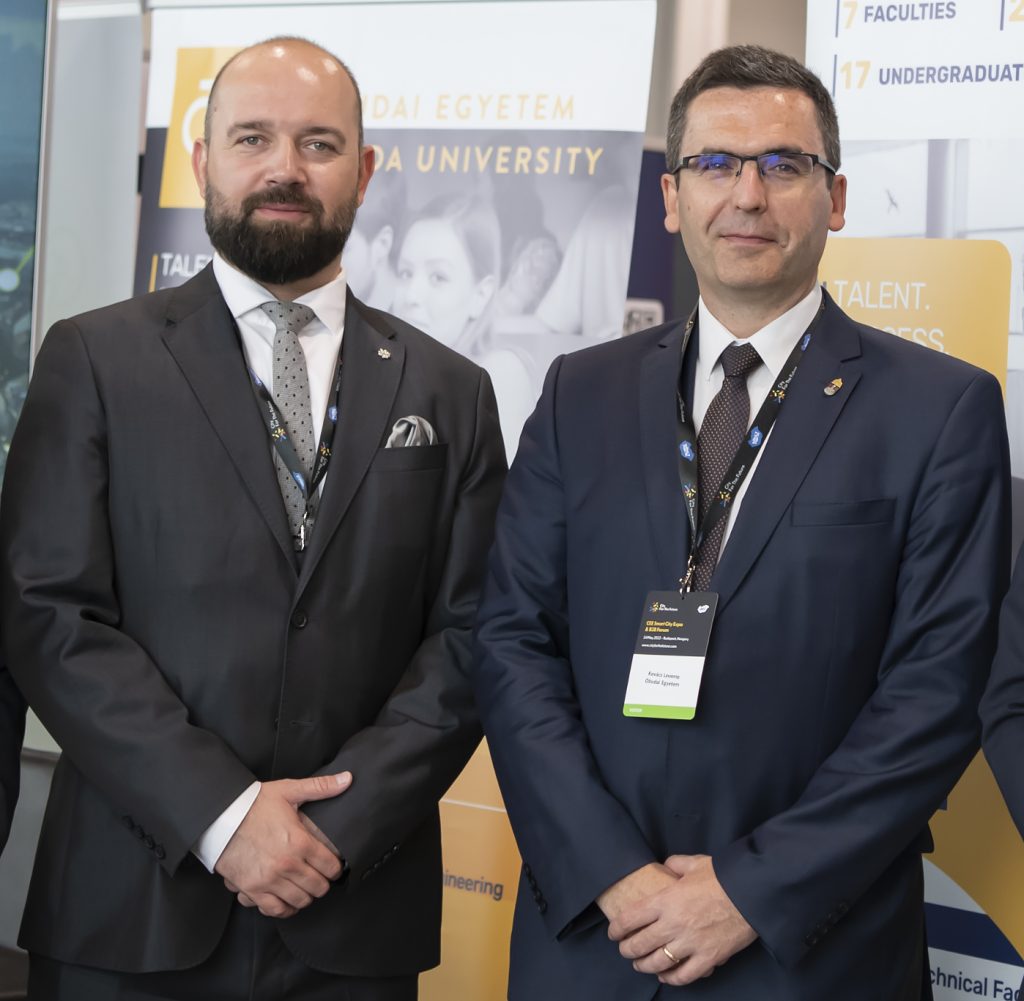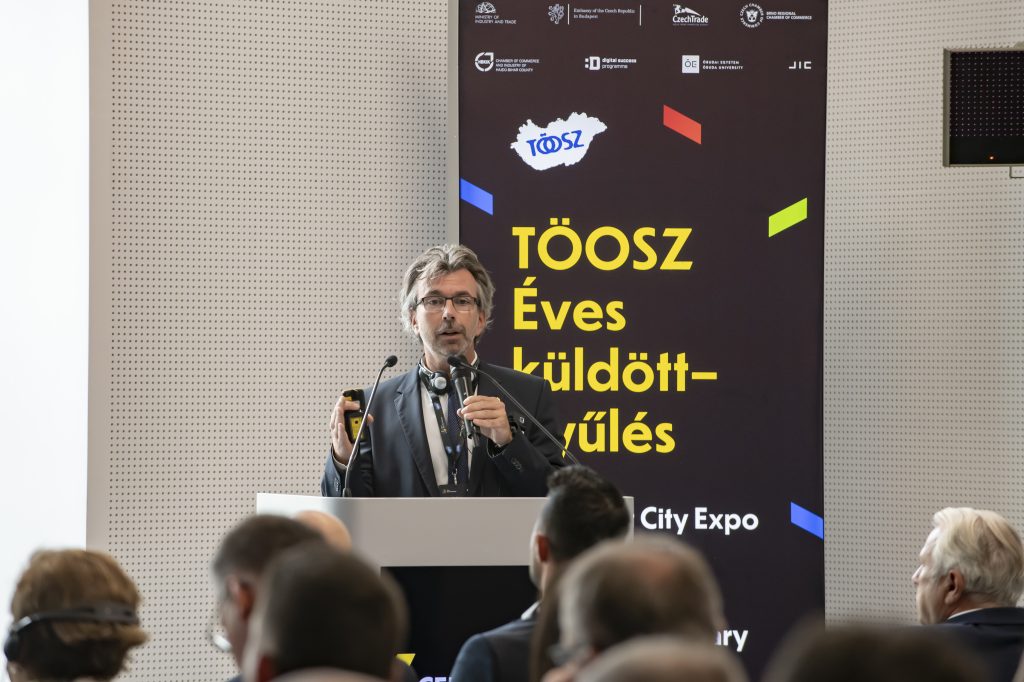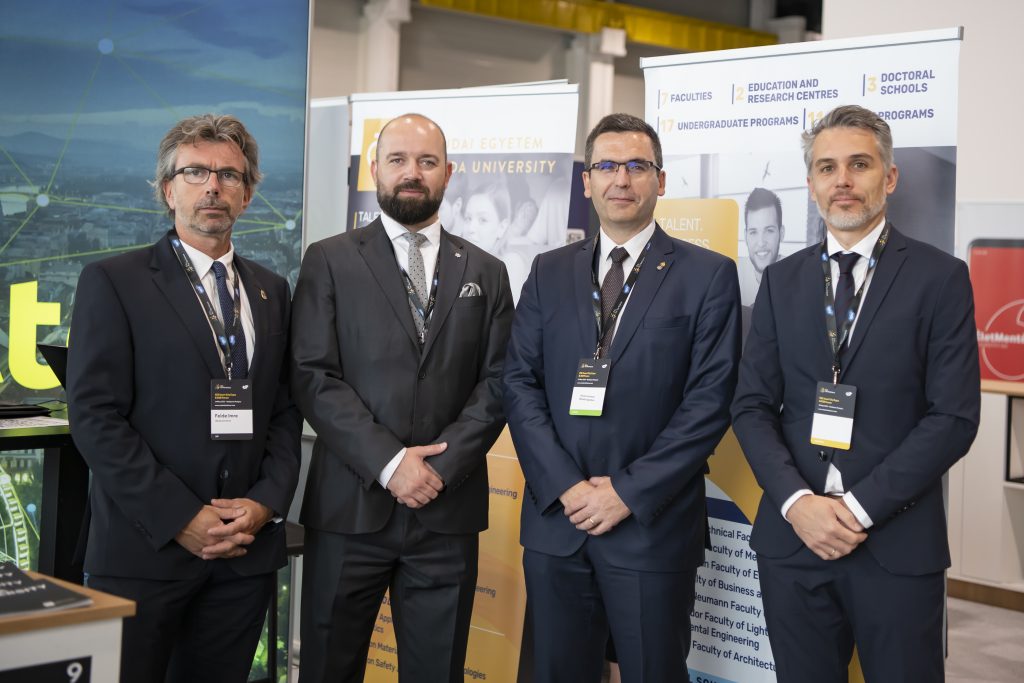ÓE was one of the organisers of the Smart CityExpo
Technological development, sustainability and the latest innovative ideas for modern cities were the focus of the Smart City Expo and conference on 24 May. One of the main organisers and professional sponsors of the event was the Obuda University. Prof. Dr. Levente Kovács, Rector of the University, presented the outstanding developments at the institution. Dr. habil. Imre Felde, Vice-Rector for Industrial and Business Relations, gave a presentation on the Big Data application developments at the university.

Today, we use smart devices in every aspect of our lives. In each case, the term "smart" refers to a specific characteristic that distinguishes the original from the better, "smart thing". A Smart City is therefore a city that is smarter and more efficient than its "predecessor" through the use of certain technologies.
"We train smart people"
- The Obuda University has been developing and researching smart technology solutions for years - said Prof. Dr. Levente Kovács. He recalled some of the more significant innovations born at the university, such as the development of the MassVentil project, the creation of its prototype, which eventually reached the point of commercialisation. He also briefly presented another successful development, the "Ariadne system", an effective support tool for the visually impaired. "The development of Smart Technologies, such as the implementation and operation of Smart City, is therefore primarily the responsibility of smart people. The Obuda University wants to fulfil this task, we train smart people, this is our mission. Among other things, through this activity we are effectively contributing to the development of Smart Cities," he added.

The Rector expressed his thanks to Tibor Bial, Ambassador of the Czech Republic to Hungary, HEPA and the Chamber of Commerce and Industry for the University's presence as an organizer and exhibitor at the event. This is an integral part of the strategic cooperation between Obuda University in the development of smart cities in the context of innovation and technology parks.
Big Data developments for smarter cities

The event continued with interesting presentations by Dr. habil. Imre Felde spoke about the ongoing Big Data application development at the university, which processes mobile network signals and supports socio-economic changes in urban life. In his presentation, he said that many major industries use different types of data analytics to make more informed decisions in their own fields. Data is part of our everyday lives. With the rise of mobile devices, among other things, we are transferring more data than ever before, at dizzying speeds. At the university, researchers are studying and summarising cellular information, collecting data on traffic patterns, residents' daily routines, the relationship between home and work, the relationship between house prices and real estate prices, and the movement of the purchasing population. A number of results have already been achieved, which can play a role in improving the quality of life of people living in cities and also serve the data needs of economic operators.
About Big Data
Thanks to Big Data analytics, organisations can use the information gathered to quickly improve the way they work, think and create value for their customers. Big Data tools and applications can help them gain insights, optimise operations and predict future outcomes.
What is a Smart City?
New technologies have been and will continue to be key to the evolution of modern cities. But to create a sustainable world, we need to look beyond technology. The ultimate goal is to make urban areas places where people feel at home. Every city and town is a complex ecosystem, saturated with interactions, building on infrastructure and mobility. The system includes energy use, water management, ecological issues, food production, logistics and health. One of the explicit objectives in developing the smart cities concept is to achieve a balance of factors. It is important that they complement each other, that their impact on the environment is assessed and that they provide valuable services to their inhabitants.
The City For The Future 2022 CEEE Smart City Expo &B2B Forum is supported by the Embassy of the Czech Republic in Budapest, Czech and Hungarian Chambers of Commerce, municipalities, theDigitális Jóléti Program.


